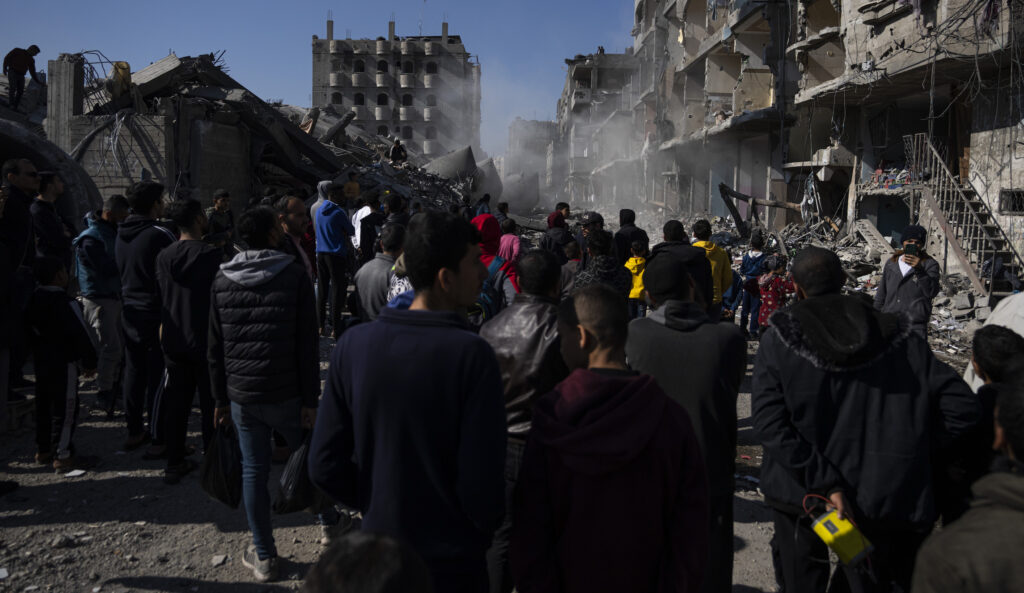Israeli forces carried out strikes in Rafah that flattened a mosque and several homes overnight Wednesday into Thursday as the world remains concerned about the Jewish state’s impending full-scale operations in the city.
The bombardment was the heaviest over the last week and a half since Israeli forces carried out an operation to free two hostages, which Palestinian leaders said resulted in the deaths of dozens of Gazan civilians.
Over the course of the war, Israeli military leaders have urged Palestinian civilians to move south in the strip as they started military operations in northern Gaza and progress south. Palestinians continued to flee south as Israel’s operations moved to the central part of the strip, and more than a million people have sought refuge in the southern Gaza city of Rafah, which is on the border with Egypt.
International leaders, including President Joe Biden, have urged Israel not to carry out any operations in Rafah due to concerns for the civilian population. Many leaders, excluding Biden, also have called for an immediate ceasefire.
Israeli leaders have said they intend to come up with a plan regarding the civilian population in Rafah, though it is unclear what that could include. International leaders have expressed concern about the possible forced displacement of Palestinians outside of the strip.
Israel will conduct its invasion by the start of the Muslim holy month of Ramadan, which begins on March 10, unless the remaining hostages are freed. Hamas took more than 240 civilians hostage from Israel during the Oct. 7, 2023, terrorist attack that prompted the current iteration of the war.
More than 100 of those hostages were returned in late November during a weeklong ceasefire agreement. The U.S., Egyptian, and Qatari governments are trying to negotiate another similar agreement with Israel and Hamas, but the sides have not yet come to an agreement.

White House Middle East adviser Brett McGurk is in the Middle East pushing a ceasefire agreement that also would include the release of the remaining hostages and a significant increase in humanitarian aid for civilians.
Israeli leaders argue they need to carry out operations in Rafah to continue its mission of destroying Hamas’s numbers and capabilities. Hamas leaders are believed to be hidden with the hostages in their vast maze of underground tunnels in Rafah. Hamas intentionally embeds itself within and underneath densely populated civilian areas to protect itself.
Gaza’s Ministry of Health, which Hamas controls, has reported that more than 29,000 people have been killed in the strip since Oct. 7, though that number does not differentiate between civilians and combatants. About 12,000 Hamas fighters have been killed, according to the Israel Defense Forces, about twice that of what Hamas has said.
CLICK HERE TO READ MORE FROM THE WASHINGTON EXAMINER
Researchers from Johns Hopkins University and the London School of Hygiene and Tropical Medicine warned that an escalation in the war could lead to the deaths of 85,000 Palestinians from injuries and disease over the next six months while assuming no change in the current level of fighting or access to humanitarian goods could lead to an additional 58,260 deaths.
The U.S., the European Union, and several Arab nations have all called for the creation of a Palestinian state following the conclusion of the war. However, Israeli leaders largely do not support such a move.

